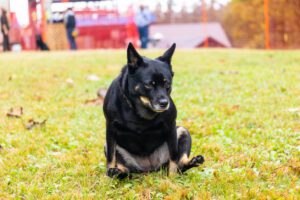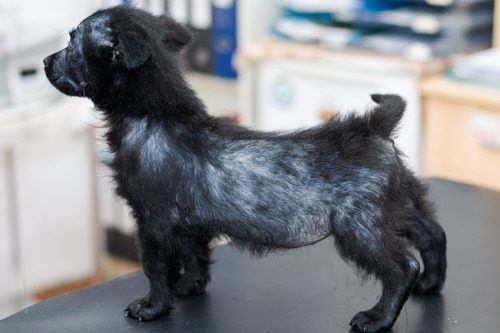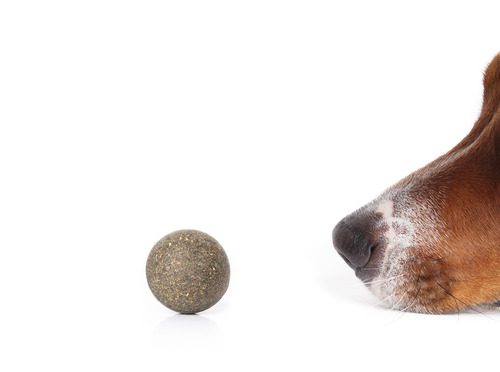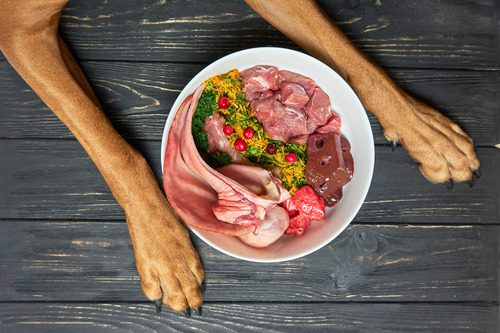Why Do Dogs Scoot Their Butts?
We have all observed the clumsy and unpleasant sight of our furry friends dragging their butts across the floor. While it may seem like a comical act to some, it is a sign of discomfort and can be a cause for concern. In this article, we will explore the reasons why dogs scoot their butts, and what can be done to prevent and treat this behavior.
What is Scooting?
When a dog scoots, its hindquarters are dragged across the ground, frequently while sitting or lying down. This behavior is typically an indication of pain or annoyance in the anal area. It might be accompanied by excessive licking or biting of the affected region, and sometimes a musty odor.
Causes of Scooting
There are several reasons why dogs may scoot their butts.
Anal Glands
Dogs have two tiny glands located on either side of the anus, which secrete a musty-smelling substance. If these glands become clogged or infected, they can uncomfortable and need to scratch or rub the area, which might result in scooting.
Impacted feces
Dry feces, or poops, that are too hard to pass can become impacted in the rectum, causing discomfort and the urge to scoot.
Parasites
Worms or other parasites such as tapeworms, hookworms, and whipworms can cause inflammation and itching around the anus, leading to scooting.
Allergies
Dogs with allergies or intolerances to certain foods may experience digestive issues, leading to discomfort and scooting.
Constipation
A diet lacking in fiber can result in constipation, which can also be distressing and make dog desire to scoot.
Anal Fissures
These are small rips in the lining of the anus, which can be painful and drive dogs to scoot their butts to relieve tenderness.
Hemorrhoids
Dogs can get hemorrhoids, which can cause pain and itching around the anus, leading to scooting behavior.
Skin Infections
Dogs with skin infections, including yeast or bacterial infections, can experience prickling and soreness in the anal area, causing them to scoot.

Are Certain Dog Breeds More Likely to “Butt Scoot”?
Scooting behavior can occur in any dog breed, but some breeds may be more prone to this behavior than others. Here are a few dog breeds that are known to be more likely to scoot their butts.
Bulldog
Bulldogs have short, squat bodies and can be prone to skin fold aggravation and inflammation, which can guide scooting behavior.
Bichon Frise
This breed is susceptible to allergies and sensitivities, which can cause swelling and scratching around the anus.
Shih Tzu
This breed is vulnerable to skin allergies and infections, which might trigger a sensation of irritation and pain around the anal area.
Poodle
Poodles have long, curly coats that can trap fecal matter and other irritants, leading to scooting behavior.
Prevention and Treatment
Scooting behavior in dogs can be uncomfortable for both the dog and its owner. Fortunately, there are several ways to treat this behavior at home or with the help of a veterinarian.
Treatment at Home
There are a few things you can try at home to relieve your furry friend from their discomfort.
Clean the Area
If your dog is scooting, it is crucial to keep their butt clean. You can handle this by wiping the area with a moist towel or using baby wipes. This can help to remove any fecal matter or other irritants that may be causing discomfort.
Increase Fiber Intake
Eating a diet that is high in fiber will aid in preventing constipation and encouraging regular bowel movements, lessening the need for scooting. You can increase your dog’s fiber intake by adding canned pumpkin, sweet potato, or green beans to their diet.
Bathe Your Dog
Bathing your dog might assist in relieving any skin rashes or inflammation near the anal region. Use a soft, dog-friendly shampoo, and make sure to rinse well.
Check for Parasites
If you suspect that your dog’s scooting behavior may be caused by parasites, such as tapeworms, consult with your veterinarian about appropriate deworming medication.
Treatment by a Veterinarian
If you have tried to treat your dog’s butt scooting at home with no improvement, it is important to have them seen by a veterinarian.
Express Anal Glands
If your dog’s scooting behavior is caused by obstructed anal glands, a veterinarian can manually express the glands to ease agony.
Prescribe Medication
In some cases, a veterinarian may prescribe medication to treat underlying health conditions, such as allergies or inflammatory bowel disease.
Conduct Diagnostic Tests
Scooting behavior is persistent or accompanied by other symptoms, a veterinarian may perform diagnostic tests, such as blood work or a fecal exam, to determine the underlying cause.
Surgical Intervention
In rare cases, surgical intervention may be necessary to address chronic anal gland issues or other health conditions that are causing scooting behavior.
Monitoring Your Dog’s Behavior
It is important to monitor your dog’s behavior and seek veterinary attention if necessary. Monitoring your dog’s behavior and body language can help you detect when they are scooting their butts. Here are some signs to look out for:
Dragging or scooting their butt along the ground
This is the most obvious sign that your dog is experiencing discomfort or irritation around their anus.
Excessive licking or chewing of the anal area
This can indicate that your dog is experiencing discomfort or pain and is trying to alleviate it through self-grooming.
Redness or swelling around the anus
Inflammation or irritation around the anus can be a sign of an underlying health condition, such as an infection or allergies.
Foul odor
An unpleasant odor coming from the anal area can indicate an infection or other health issue.
Changes in bowel movements
If your dog is experiencing diarrhea or constipation, it may be more prone to scooting behavior.
Conclusion
Scooting is a usual behavior among dogs and can be caused by a variety of factors, including allergies, parasites, infections, impacted anal glands, and anal fissures or hemorrhoids. While it may seem like a comical act, scooting can be a sign of discomfort and may require veterinary attention. By maintaining good hygiene, feeding your dog a high-quality diet, and monitoring their behavior for signs of discomfort, you can help prevent scooting and ensure your dog’s comfort and well-being.
If your dog is scooting their butt, contact Best Friends Veterinary Hospital. Our veterinarians will help your dog begin to feel comfortable again by addressing the root cause of the issue. Call us today at or request an appointment online.
Recent Posts
About Best Friends Veterinary Hospital
Our veterinarians and staff warmly welcome dogs, cats, and a variety of exotic pets as patients here at our animal hospital, and we offer a host of services to give your unique family member a lifetime of excellent care.





